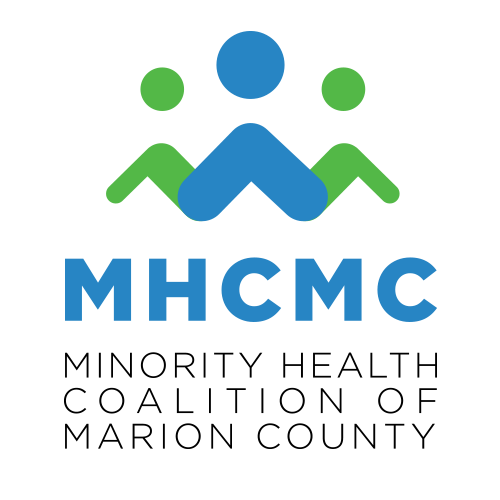
HIV Resources
Learn how to protect your health.
Ending the HIV epidemic.
Even though there is a lot more awareness about HIV, unfortunately many people still do not know what it truly is and how they can prevent contracting or spreading the virus. Today, it’s simpler than ever to prevent the spread of the virus and undergo testing for HIV. Learn how you can protect yourself and help us end the HIV epidemic.
What is HIV?
HIV stands for human immunodeficiency virus, which attacks the body’s immune system that helps the individual be able to fight against diseases and viruses. Symptoms can include rash, fever, swollen lymph nodes, muscle aches, chills, fatigue, mouth ulcers, and night sweats. But what makes HIV so hard to detect is the fact that its symptoms are very much like the flu. In some cases, people who may be infected will not experience any symptoms. The only accurate way to know for sure if someone has HIV is to get tested.
How do you get HIV?
HIV spreads through blood, pre-seminal fluid, seminal fluid, vaginal fluid, rectal fluid and breast milk. If you are participating in activities that put you at risk for contracting HIV — such as unprotected sexual intercourse — should get tested every three to six months. If you are inactive, you should still get tested at least once a year to ensure you’re taking care of your health. If you do receive an HIV diagnosis, start treatment as soon as possible so that you have the opportunity to live a longer and healthy life.
How do you get tested?
Eskenazi Health Centers (cont.)
Herron Riverside High School, 3010 N. White River Pkwy. E. Dr.
Indianapolis, IN 46208-4983
North Arlington, 2505 N. Arlington Ave., Indianapolis, IN 46218
North Illinois, 1660 N. Illinois St., Indianapolis, IN 46202
Northwest Middle School, 5525 W. 34th St., Indianapolis, IN 46224-1301
Pecar, 6940 N. Michigan Road, Indianapolis, IN 46268
Pedigo, 1112 Southeastern Ave., Indianapolis, IN 46202
Primary Care, 710 Eskenazi Ave., Indianapolis, IN 46202
West 38th St., 5515 W. 38th St., Indianapolis, IN 46224
Westside, 2732 W. Michigan St., Indianapolis, IN 46222Northeast District Health Office, 6042 E. 21st St., Indianapolis, IN 46219
South District Health Office, 7551 Shelby St., Indianapolis, IN 46227
Substance Use Outreach Services, 1650 N. College Ave., Indianapolis, IN 46202
Marion County Public Health Department (MCPHD) walk-in clinic — Provides free testing except for hepatitis
Action Health Center, 2868 N. Pennsylvania St., Indianapolis, IN 46205
Bell Flower Clinic, 640 Eskenazi Ave., Indianapolis, IN 46202
Community Health Network - Quest Diagnostics, Patient Service Center, 7150 Clearvista Dr., Indianapolis, IN 46256
Concord Center Association, 1310 S. Meridian St., Indianapolis, IN 46225
Damien Center, 26 N. Arsenal Ave., Indianapolis, IN 46201
Eskenazi Health Centers
Barton Annex, 501 N. East St., Indianapolis, IN 46204
Blackburn, 700 Dr. M.L.K. Jr St., Indianapolis, IN 46208
College Avenue, 1650 N. College Ave., Ste. B, Indianapolis, IN 46202
Forest Manor, 3840 N. Sherman Dr., Indianapolis, IN 46226
Grassy Creek, 9443 E. 38th St., Indianapolis, IN 46235
There are many types of HIV tests a person can take. Some options include the nucleic acid test (NAT), rapid antigen or antibody test, and antigen or antibody lab test. For faster results, the rapid antibody test is often the best option. In Marion County, Indiana, there are many testing sites you can go to near you, including:
The 3 Stages of HIV
It is always important to have a care of your health. For those living with HIV, should start treatment as soon as possible so you can give yourself the opportunity to live a long life. A person who takes their medication as prescribed can have an undetectable viral load. If someone has an undetectable viral load, then they cannot pass HIV on to their partner. That is why it is very important that a person with HIV stays consistent with their antiretroviral (ART) medications, it helps them be able to protect themselves and others. But if they don’t take their medications consistently, that individual’s HIV can develop into what we call AIDS, which stands for autoimmune deficiency syndrome.
There are three stages of HIV. One stage is called the acute stage. At this stage, HIV is highly contagious and some individuals may or may not get any symptoms. AIDS is the advanced stage or third stage of HIV and can occur overtime if left untreated.
Concord Center
Emergency Financial Assistance-Housing
Emergency Financial Assistance-Food
Emergency Financial Assistance-Utilities
Medical Transportation
Damien Center
Early Intervention
Emergency Financial Assistance-Housing
Emergency Financial Assistance-Food
Emergency Financial Assistance-Utilities
Food bank/Home-delivered meals
Housing Services
Medical Transportation
Behavioral Health
Bell Flower Clinic
Early Intervention Services
Ryan White Program
Infectious Disease Providers
AIDS Pharmaceutical Services
Health Education/Risk Reduction
Connections Project
HIV Prevention
Linguistics Services
Minority AIDS Initiative Program
Harm Reduction
Substance Abuse Services
HIV Counseling and testing
Life Coaching
Vision
Syringe Services
Specialized Case management
Health Insurance/Premium Cost Sharing
Non-medical Case Management
Mental Health
Linkage
Rapid Start
Community Health Network
Outpatient Ambulatory Health Services
Eskenazi Health
Linguistics
Outpatient Ambulatory Health Services
AIDS Pharmaceutical Assistance
Emergency Financial Assistance-Food
Medical Transportation
Vision
Oral Health
Methodist Life Care Program
Outpatient Ambulatory Health Services
Early Intervention Services
Food Bank/Home Delivered Meals
Emergency Financial Assistance
Medical Nutrition Therapy
Health Insurance Premium and Cost Sharing
Medical Transportation
Mental Health
Other Services
Numerous Marion County agencies also offer additional services for people seeking assistance related to HIV/AIDS. They include the following:
Substance Use Outreach Services
Early Intervention Services
Health Education/Risk Reduction
STD Screening
Confidential HIV Testing
Hepatitis B and C Screenings
Substance Use Case Management
School-based Educational Interventions



